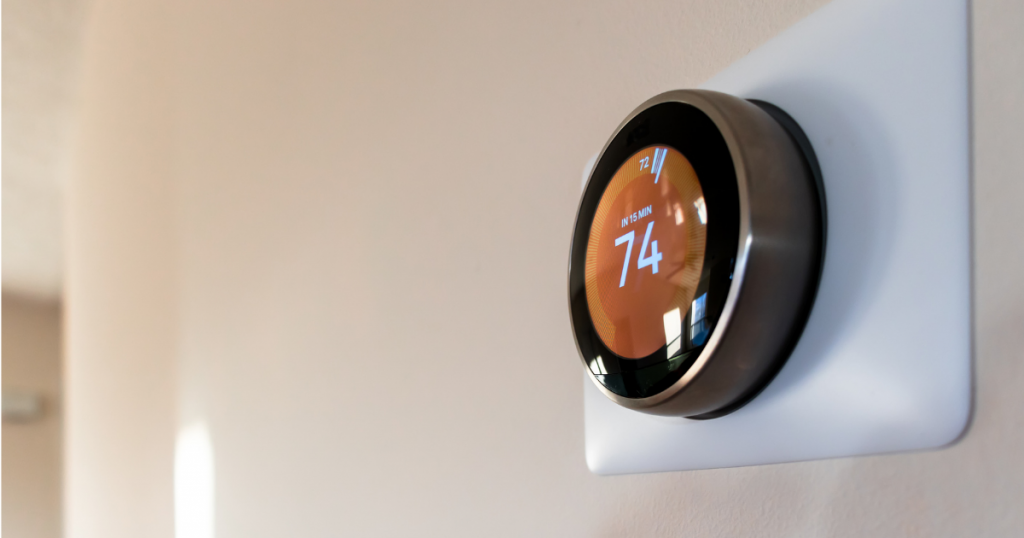
We’ve all likely seen the ongoing headlines about rising energy costs by now, and how they will inevitably lead to a sharp increase in our household bills in the coming months.
Many will be feeling understandably worried about how this might affect their personal finances, and will naturally be looking for effective ways to help keep costs down wherever they can.
We’ve previously discussed a few quick and easy ways to make your home more energy-efficient, such as rearranging furniture and bleeding radiators, along with longer-term investments like boiler upgrades and insulation. Below, we’ll go into further detail about how smart controls can also be a useful tool in reducing heating bills.
Why are energy costs increasing?
To break things down simply, the steep price increases are a direct result of the energy price cap—the maximum price suppliers in England, Wales and Scotland can charge households—being raised. This has happened due to a record rise in global gas prices, with wholesale prices quadrupling in the last year.
That means that from April, energy firms can raise their prices by 54%, meaning a typical household could see electricity and gas bills jump by £693 a year.
The price cap is updated twice a year and exists as a way of stopping energy companies from making excessive profits while also allowing them to pass on reasonable costs to customers, including increases in the cost of buying gas. The cap was last updated in August, meaning it no longer reflects the recent soaring costs of gas—hence the upcoming price hike for customers.
What are smart controls?
Smart controls essentially provide a more efficient way of controlling the temperature in your household, in turn helping you save money on energy bills.
They offer quick and easy control over your heating and hot water schedules, allowing you to optimise the times your home uses energy to suit your daily schedule.
Most smart controls can be adjusted using a smartphone app, so you don’t even have to be at home to use them.
What kinds of smart controls are available?
Smart thermostats and smart heating systems are the two main pieces of tech revolutionising how we heat our homes.
Smart thermostats, as the name suggests, are a replacement for traditional thermostats. These can be set to a heating schedule and can be adjusted from an app or by voice using a smart speaker like an Amazon Alexa or Google Nest. More advanced smart thermostats are equipped with sensors and can adjust temperatures based on whether a room is occupied, or when you arrive/leave home.
Smart heating systems are a little more complex and costly. These offer greater room-by-room control and are generally fitted on each radiator where they use a smart valve to control water flow and temperature.
How much can smart controls save on bills?
Estimates can vary depending on a range of factors; the size of your home, average outdoor temperatures, number of people and what company supplies your energy.
According to the Energy Saving Trust (via The Eco Experts), smart thermostats can cut energy bills by £75 annually, while Hive claims its offering can save up to £110 per year.
What is the installation process?
Typically, smart controls can be added to most existing boilers as long as they already use a thermostat, making installation largely straightforward. With that being said, it’s always worth checking with the manufacturer beforehand.
Smart thermostats require a C-wire to connect and function, and homes that don’t already have this will likely need to hire a professional when it comes to installation. Aside from that, it’s a case of simply taking off the old thermostat’s face and backplate, then connecting and fixing the new smart unit in its place.
For tradespeople, it means an extended knowledge of how these devices work will be increasingly called upon, so brushing up on the latest offerings along with their pros and cons is definitely worthwhile.
It also means that for plumbers, there’ll be a further crossover with the electrical industry and formal electrical qualifications could become more of a necessity as the transition to smart controls speeds up and more homes require installation. With that being said, if ever there was a time to expand your skill set to cover extra trades, doing so now could significantly increase the scope of work you’re able to carry out as the UK moves towards more sustainable practices.